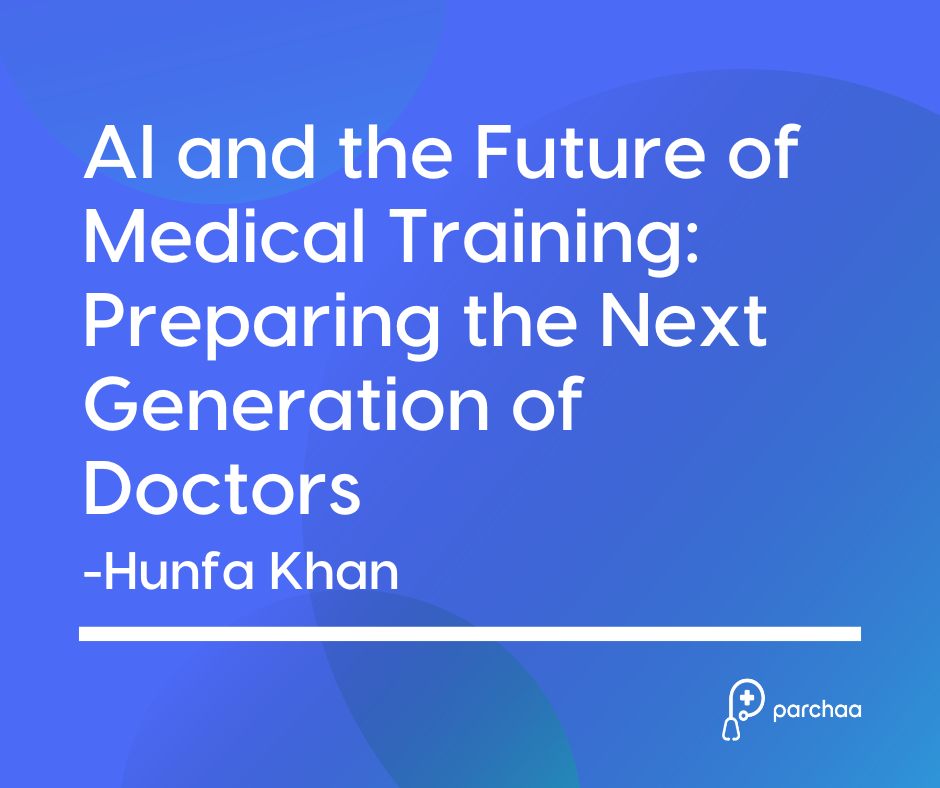Contact Us
If you have any questions, feedback, or need assistance, our dedicated support team is here to help.

Rethinking Medical Training in an AI Era
The world’s healthcare systems are rapidly transforming. Medical knowledge is expanding faster than any curriculum can keep up, and today’s doctors face ever-more complex cases, patient expectations, and technologies. The traditional approach, with rigid curricula, paper-heavy records, and standardized exams, risks leaving the next generation underprepared. Artificial intelligence (AI) is rewriting this script, making medical training personalized, efficient, and more relevant than ever before. The question is no longer whether medical educators should embrace AI, but how quickly they can adapt to harness its potential.
Why Change is Urgent: Facing the Challenges in Medical Training
Despite advances in global health, medical schools and training hospitals struggle with critical bottlenecks:
- Students face “information overload.” By 2030, medical knowledge is projected to double every 73 days.
- The average consultation time in Indian hospitals is just 2 minutes, raising risks of missed details and physician burnout.
- Skills gaps persist, especially in diagnostic reasoning and procedural competence, due to limited access to cases and expert mentorship.
AI directly addresses these issues, offering tools that supplement hands-on practice and democratize educational access.
The AI Advantage: Transforming Every Stage of Medical Learning
Simulation-Based Learning
AI-powered simulations allow students and trainees to practice surgeries, diagnose conditions, and respond to emergencies in a risk-free, real-time environment. Leading American and East Asian medical schools show that students exposed to AI-driven simulators score 18% higher on standardized assessments, with faster skill acquisition and greater diagnostic accuracy.
Adaptive Tutoring and Personalized Pathways
AI-enabled platforms adjust to each learner’s pace and knowledge gaps, delivering targeted quizzes, video modules, and feedback through natural language processing. Longitudinal studies confirm improved learner satisfaction, reduced remediation rates, and better preparation for clinical rotations among those enrolled in AI-curated curricula.
Automated Assessment and Feedback
Traditional subjective, time-consuming evaluation is being replaced by AI tools that instantly grade clinical notes, essay responses, and even communication skills through emotion-sensing platforms. This allows for immediate and accurate feedback, helping both students and educators identify blind spots early.
Interprofessional and Collaborative Education
AI platforms can simulate case-based discussions and team interactions, helping doctors-in-training understand and practice effective interprofessional communication, a growing requirement in global healthcare systems.
Opportunities: Quantitative and Qualitative Gains
- In a longitudinal European study, AI-driven medical training led to 18% higher exam scores and 12% fewer remediation cases than traditional cohorts.
- Hospitals using AI for diagnostic support reduced diagnosis times from days to hours, enabling quicker treatment and better patient outcomes.
- Participants in AI-powered telemedicine and clinical decision support systems reported greater confidence in diagnosis and improved adherence to best-practice guidelines.
Educators note that AI frees faculty from routine grading and lets them focus on mentoring and advanced teaching, while learners appreciate personalized guidance and instant feedback.
Ethical, Regulatory, and Technical Challenges
While AI’s benefits are clear, thoughtful implementation is essential:
- Data Privacy and Security: Sensitive patient and student data must be protected. Platforms should use secure data-sharing and consent-based access.
- Algorithmic Bias: AI systems trained on incomplete or unrepresentative data may perpetuate health inequities. Consulting firms emphasize the importance of diversity in training data and ongoing audit processes.
- Faculty Readiness: Surveys find resistance among some educators due to lack of technical expertise. Investment in faculty development and interdisciplinary collaboration is key.
- Equitable Access: Rural and resource-limited regions may lag in AI adoption. Mobile-friendly, multilingual, cloud-based solutions, such as Parchaa’s platform, help close these gaps.
Parchaa.ai: Championing AI-Empowered Medical Training
Parchaa’s mission is to democratize high-quality healthcare and education through AI.
- 27 Purpose-Built Modules: From simulation and telemedicine to automated assessments, Parchaa’s integrated platform supports every stage of medical training.
- Multilingual and Accessible: Mobile apps and cloud services connect urban and rural trainees, ensuring that no future doctor is left behind.
- Clinical Decision Support System (CDSS): Real-time, AI-powered suggestions for diagnostics, medications, and drug interactions improve both training and care outcomes.
- Education Handouts and Training Resources: Easily accessible digital materials help trainees and doctors keep up with evolving guidelines and advances in care.
Case studies show that hospitals using Parchaa have reduced diagnosis times, shortened waiting lists, and increased adherence to best-practice protocols. Doctors report feeling less burned out and better supported, while trainees describe improved preparedness and confidence through simulation and adaptive e-learning.
Insights from the Field: Educators and Learners Respond
A teaching hospital implementing Parchaa’s AI modules saw faculty spend 30% more time on advanced instruction and mentorship, while final-year trainees scored 15% higher on clinical decision-making evaluations.
“Combining empathy and AI allows us to train better doctors, ones who are skilled, patient-centered, and ready for tomorrow’s challenges,” says a senior faculty leader.
Learners emphasize the value of real-time, on-demand feedback and the ability to engage in safe, simulated practice for rare and complex procedures.
The Road Ahead: Action for Medical Education Leaders
To truly harness AI’s potential, medical educators, policymakers, and practitioners must:
- Update curricula to integrate simulation, adaptive learning, and automated feedback.
- Invest in faculty training and technical support across diverse regions.
- Insist on ethical frameworks including robust data privacy, fairness audits, and transparent reporting standards.
- Collaborate with platforms like Parchaa to pilot and scale innovative solutions.
Conclusion: The Future Is Now, Make AI Part of Your Medical Training
The race to prepare the next generation of doctors is on. Leaders must choose tools that foster adaptability, empathy, and clinical excellence. Parchaa stands ready, offering AI-powered, human-centric solutions that set new standards in medical education.
Take the next step and empower tomorrow’s doctors with Parchaa’s AI medical training platform. Experience the transformation and make excellence the norm.



